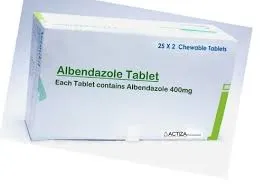- Afrikaans
- Albanian
- Amharic
- Arabic
- Armenian
- Azerbaijani
- Basque
- Belarusian
- Bengali
- Bosnian
- Bulgarian
- Catalan
- Cebuano
- Corsican
- Croatian
- Czech
- Danish
- Dutch
- English
- Esperanto
- Estonian
- Finnish
- French
- Frisian
- Galician
- Georgian
- German
- Greek
- Gujarati
- Haitian Creole
- hausa
- hawaiian
- Hebrew
- Hindi
- Miao
- Hungarian
- Icelandic
- igbo
- Indonesian
- irish
- Italian
- Japanese
- Javanese
- Kannada
- kazakh
- Khmer
- Rwandese
- Korean
- Kurdish
- Kyrgyz
- Lao
- Latin
- Latvian
- Lithuanian
- Luxembourgish
- Macedonian
- Malgashi
- Malay
- Malayalam
- Maltese
- Maori
- Marathi
- Mongolian
- Myanmar
- Nepali
- Norwegian
- Norwegian
- Occitan
- Pashto
- Persian
- Polish
- Portuguese
- Punjabi
- Romanian
- Russian
- Samoan
- Scottish Gaelic
- Serbian
- Sesotho
- Shona
- Sindhi
- Sinhala
- Slovak
- Slovenian
- Somali
- Spanish
- Sundanese
- Swahili
- Swedish
- Tagalog
- Tajik
- Tamil
- Tatar
- Telugu
- Thai
- Turkish
- Turkmen
- Ukrainian
- Urdu
- Uighur
- Uzbek
- Vietnamese
- Welsh
- Bantu
- Yiddish
- Yoruba
- Zulu
Nov . 11, 2024 01:09 Back to list
Ivermectin Injection Uses and Safety for Human Health
Ivermectin Injection for Humans An Overview
Ivermectin is a well-known antiparasitic medication that has gained notoriety for its potential applications in treating various conditions in both humans and animals. Originally developed for veterinary use, ivermectin has become a critical medication for treating parasitic infections in humans, including onchocerciasis, lymphatic filariasis, and scabies. While oral and topical formulations are commonly used, the exploration of ivermectin in an injectable form has garnered interest among researchers and healthcare providers.
Mechanism of Action
Ivermectin works by binding to specific channels in the parasite's nervous system, disrupting the transmission of signals essential for function and viability. This interaction ultimately leads to paralysis and death of the parasite. By targeting glutamate-gated chloride channels and GABAergic synapses, ivermectin effectively immobilizes a wide range of parasites, making it a potent treatment option.
Clinical Applications
Ivermectin injection is primarily used in cases where oral administration may be less effective or feasible. This includes severe cases of filarial infections, particularly when a quick therapeutic response is necessary. Injectable ivermectin has been studied for its efficacy in treating conditions such as
1. Onchocerciasis Also known as river blindness, this parasitic disease is caused by the worm Onchocerca volvulus. Ivermectin is a first-line treatment and can be administered as an injection in severe cases.
2. Lymphatic Filariasis This debilitating disease results from filarial worms, primarily Wuchereria bancrofti. In endemic regions, ivermectin is often used in combination with other medications to reduce morbidity associated with the disease.
3. Scabies While topical treatments are standard for managing scabies infestations, injectable ivermectin can be considered in severe cases or outbreaks, providing an option for individuals who may not respond to topical treatments.
Safety and Efficacy
ivermectin injection for humans

The safety profile of ivermectin is generally favorable, as it has been extensively used in various populations over the years. Common side effects may include mild gastrointestinal upset, dizziness, or rash. Serious adverse reactions are rare when the medication is used as directed.
However, the use of intravenous ivermectin has not been extensively studied, and while there are promising studies, caution must be exercised. Each patient should be evaluated carefully, considering individual health conditions and potential drug interactions. Research continues to explore optimal dosing and administration routes to maximize efficacy while minimizing adverse effects.
Ivermectin and COVID-19
The debate around ivermectin's role in treating COVID-19 has brought it into the global spotlight. Some studies suggested that ivermectin could inhibit SARS-CoV-2 (the virus that causes COVID-19) in vitro. However, clinical trials failed to provide substantial evidence to support its use as a treatment for COVID-19. Major health organizations, including the WHO and the FDA, have recommended against using ivermectin for COVID-19 outside of clinical trials.
Future Directions
The potential of injectable ivermectin extends beyond its current applications. Ongoing research aims to explore its efficacy across various infectious diseases, as well as potential synergistic effects when used with other medications. Additionally, efforts to develop more advanced formulations could improve the pharmacokinetics and reduce side effects, making it a safer option for those with complex health conditions.
Conclusion
Ivermectin injection represents a significant tool in the fight against parasitic infections, providing an essential option in certain critical circumstances. While its usage has expanded since its initial approval, healthcare providers must remain vigilant regarding emerging evidence, especially concerning new diseases like COVID-19. As research continues, we must balance the eagerness to explore new treatments with a commitment to evidence-based practices, ensuring that all patients receive safe, effective, and judicious care.
In summary, injectable ivermectin holds promise, particularly in severe cases of parasitic infections where rapid intervention is needed. Continued research and clinical trials will ultimately guide its future applications, shaping it into a more robust therapeutic option in global health care.
-
Guide to Oxytetracycline Injection
NewsMar.27,2025
-
Guide to Colistin Sulphate
NewsMar.27,2025
-
Gentamicin Sulfate: Uses, Price, And Key Information
NewsMar.27,2025
-
Enrofloxacin Injection: Uses, Price, And Supplier Information
NewsMar.27,2025
-
Dexamethasone Sodium Phosphate Injection: Uses, Price, And Key Information
NewsMar.27,2025
-
Albendazole Tablet: Uses, Dosage, Cost, And Key Information
NewsMar.27,2025













